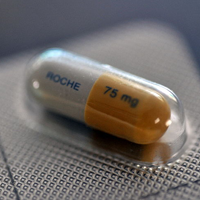Over the past decade, the amount of money flowing into developing countries to address health issues has grown at an incredible rate. According to one authoritative estimate, the total annual value of money and goods donated to global health from all sources, public and private, has risen from less than $8 billion in 1995 to almost $27 billion in 2010 -- with most of that increase occurring since 2002. Game-changing new organizations have been created during this period, from radically different kinds of private philanthropies, such as the Bill & Melinda Gates Foundation, which has made more than $13 billion in global health donations since its founding, to new organizations and delivery vehicles for channeling government donations, such as the Global Fund to Fight AIDS, Tuberculosis and Malaria, which has provided more than $16 billion in grants so far. In addition, massive new bilateral programs to support health -- such as the U.S. President's Emergency Plan for AIDS Relief (PEPFAR) and the President's Malaria Initiative, both established under former President George W. Bush -- have expanded the scope, goals and monetary support for health programs across a broad set of poor countries.
The ever-expanding number of people and organizations involved in global health work is both a cause and symptom of this growth in health aid over the last few decades. In fact, the remarkable diversity of people and organizations now involved is a defining feature of the global health field today. A study in 2008 estimated that no fewer than 40 bilateral donors, 26 United Nations agencies, 20 global and regional funding mechanisms, and 90 distinct initiatives -- such as the rapidly proliferating "public-private" and "product-development" partnerships -- were involved in collecting and delivering assistance for health programs in poor countries, to say nothing of the uncountable number of smaller-scale initiatives and civil-society, community-based and individually supported efforts that fly under the radar. This wide range of engaged groups, who we can call the "stakeholders" of global health, is a far cry from the health-aid delivery model of decades ago, which was dominated by smaller, predominantly bilateral, rich-country aid sums funneled into developing countries to support government-run health systems.
While public money still makes up much of total health aid, the private sector plays an increasingly large and important role in funding projects, shaping policies and determining courses of action. Since 1990, the proportion of funds provided for health through traditional multilateral channels, such as the World Bank and the World Health Organization (WHO), has declined while the relative amount provided through nongovernmental organizations has expanded. For example, the Gates Foundation's $1 billion of yearly giving on global health is essentially equivalent to the WHO's entire annual budget, and the foundation's influence has grown to the point where it has been dubbed a "shadow WHO."

